The Ministry of Defence has outlined ongoing efforts to strengthen the Royal Fleet Auxiliary (RFA) workforce and capabilities in response to written questions from Rebecca Paul, Conservative MP for Reigate.
The questions focused on recruitment, retention, and the impact of personnel and ship losses on the RFA’s operational capacity.
In response to concerns about recruitment and retention, Al Carns, Parliamentary Under-Secretary and Minister for Veterans, emphasised the importance of the RFA’s personnel, stating: “The Royal Fleet Auxiliary (RFA) are highly valued, specialist personnel.”
He highlighted the recent agreement of a pay award for RFA staff, achieved with the support of Maritime Trade Unions, as a key step forward.
Carns remarked that this agreement forms part of a broader plan for RFA reforms. “These reforms will improve the wider employee offer for those serving and ensure the RFA can continue to perform its vital role supporting the Royal Navy and our allies,” he explained.
Addressing concerns about the retirement of two RFA tankers, Carns assured that the withdrawal of RFA Wave Knight and RFA Wave Ruler would not impact the RFA’s operational capacity. “Neither tanker was due to go to sea again and nor had they been to sea in years,” he stated.
The RFA’s fleet has been modernised with the introduction of newer Tide-class tankers, which continue to provide critical support. Additionally, the RFA is preparing for the delivery of three Fleet Solid Support (FSS) ships, set to enter service by 2032, ensuring the organisation’s long-term capability.




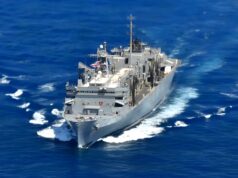
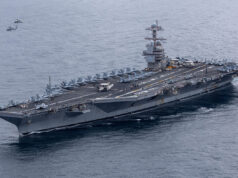
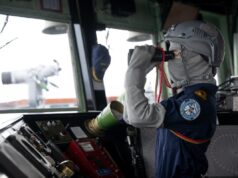



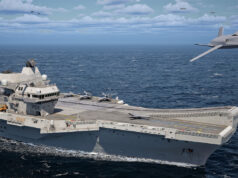

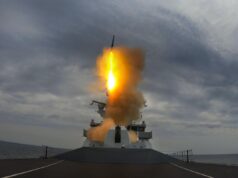

“ Neither tanker was due to go to sea again and nor had they been to sea in years”
So the idea of having serviceable reserve capacity…..
Both of them were, by all accounts, in good shape having been reasonably well maintained engines run periodically etc. I think the issue here is that they need dry docking for periodic hull inspections etc so a smallish amount of ££££ means they are sacrificed as cash is needed for getting all T45s serviceable amongst other projects….
I don’t think Daring has been to sea in years either, hopefully he’s not going to get rid of that too based on his logic.
Wave ruler was apparently in terrible condition, having been laid up 6 years plus, but wave knight was in much better condition by all accounts, having been laid much more recently, I think Ruler was a goner without an extremely costly refit
I went on ruler a couple of years ago to get some distilled water. It was in really rough shape. Don’t think 6 months at a refit would have been enough.
Should’ve kept one in reserve and cannibalised the second for spares.
The RAN need both these tankers on loan for 12 months while their ships are under repair.
Is that true?
Personally, I’d be delighted if they were lent to AUS and then handed back.
Well although the current government seem to be getting rid of ships, they do appear to have made steps to retain and recruit a sufficient number of people to operate these vessels. One does wonder why the previous government procrastinated so much in regards to RFA pay and benefits.
As welcome as this is, and boy is it welcome!, it’s not exactly quick off the mark either. The big two Navy things that HMG needed to do on day one was to decide on how to keep Harland and Wolff on track and settle RFA pay and conditions. As I recall there was a guest article from a Labour policy wonk prior to the election that listed day-one decisions, which included both of these, so it wasn’t like they didn’t know. However HMG just washed its hands of the former, mumbling something about market forces, before eventually paying the Spanish government hundreds of millions to take over. The latter decision took six months, but at least now seems to be going somewhere.
Well done for getting there and let’s hope it doesn’t fizzle out.
It is frustrating that the government refused to make a better pay offer for these “highly valued, specialist personnel” until the RFA was in crisis to the point of being unable to function. They really need to get the idea that you pay market rates for the skills and experience you want to employ/retain, or else you accept doing without the capability. There’s really no way around that and it applies to everyone on the public payroll. Having standardised pay grades across the CS results in some roles being overcompensated for what they entail, and others being underpaid to the point that recruitment campaigns routinely fail. It’s a policy that really should be scrapped.
Has the RFA ever actually bothered to ask employees that resign why they are leaving?? Definitely not, because then it will have to be addressed. The recent pay award won’t work (6.5% when the RMT were demanding 30%) the whole culture needs to change and move the RFA away from the Navy so they can’t keep taking credit for the actions of the RFA.
They absolutely know why people are leaving, and the same concerns are given over and over again, but are never listened to. This is the biggest reason people are leaving, because we are exhausted with hearing the same lip service given and no action ever being taken. The pay offer has absolutely been over-hyped and many feel like the unions basically gave in. No one in government, RN or RFA command care enough to make any real change and until something fundamentally changes in the way the staff’s concerns are handled, then they are going to continue to have issues with recruitment/retention and fights with the MTU’s such as we’ve seen this past 12 months, are going to become more frequent.
TLDR; They’ve asked, they’ve had answers, they just don’t care.
FLeet Solid Support will be white elephants. They are being designed on the back of a fag packet by people who don’t understand what is required for a platform to operate organically world wide. Also six tankers are needed to meet future commitments, not just the four Tides they have. Wave Class were never intended to be laid up as early as they were, that was dictated by the crewing crisis.
What are your actual critisms of FSSS
Not much point building ships if the government can’t/won’t raise taxes to meet the cost of crew and maintenance.
The NHS is run on foreign labour. Not sure why this model isn’t applied to crewing RFA ships. I don’t agree with it but I don’t understand why it isn’t being applied.
Best thing the UK could do for it’s majority right wing taxpayers would be to withdraw from commonwealth support and overseas territories.
Everything is political.
Just as with the NHS it is difficult for the rn and RFA to
Attract and retain long term staff.
Citizens don’t seem very interested in paying more tax so it’s going to continue on as a doom loop.
The RFA did well to achieve some understaffing compensation. It’s low and likely an inaquate share of monies saved through understaffing. ….they did win it though and I imagine that was decisive in stopping strike action.